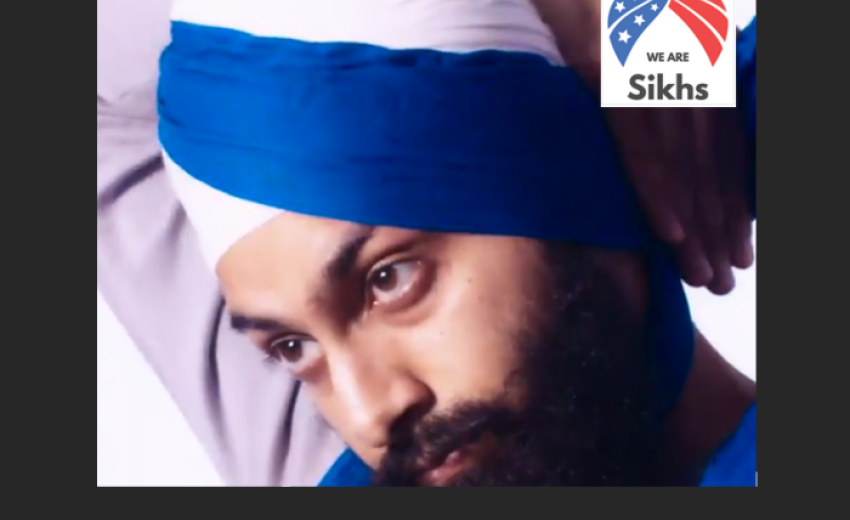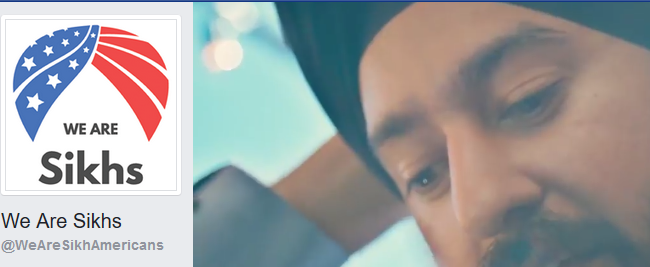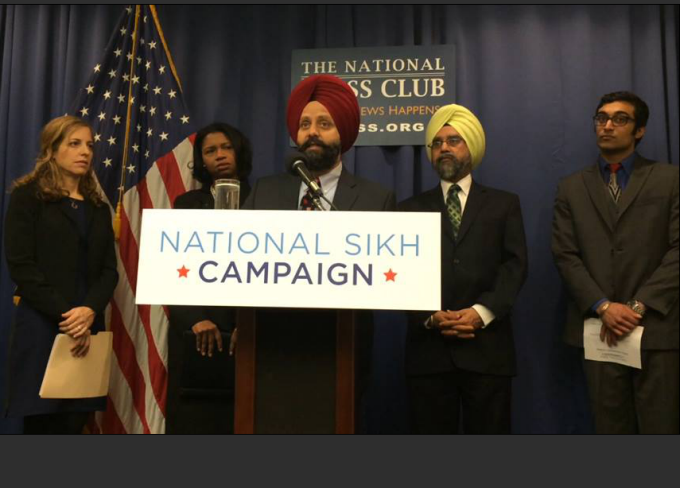
-Very nice to meet you Gurwin Singh. I've been seeing the work you're involved with at the Sikh Campaign and it's been very pride inspiring and impressive. How did you get started on the Sikh Campaign?
The idea for National Sikh Campaign came when I was working on the Obama campaign in Chicago. Like most campaign staff, I worked on the weekends and I remember being in the office and getting a CNN alert on my phone about a shooting in a Sikh temple in Oak Creek, Wisconsin.
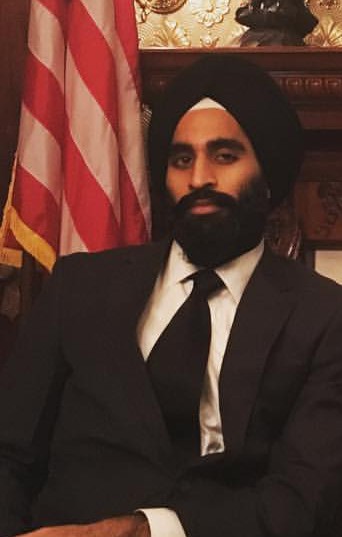 In the coming days I remember I would casually walk over to the TVs near the communications shop a few times a day to get the latest updates on the shooting. I was really incensed about the incident and I was really disappointed in some of the coverage of our community.
In the coming days I remember I would casually walk over to the TVs near the communications shop a few times a day to get the latest updates on the shooting. I was really incensed about the incident and I was really disappointed in some of the coverage of our community.
I remember looking around the room and thinking if our community had 1/100 of the capability of the Obama campaign to help our neighbors understand Sikh values and the contributions of Sikh Americans, this capability might not stop a deranged white supremacist like the one in Oak Creek, but it would surely help mitigate some of the bullying, discrimination, and intolerance that many Sikhs face on a day to day basis.
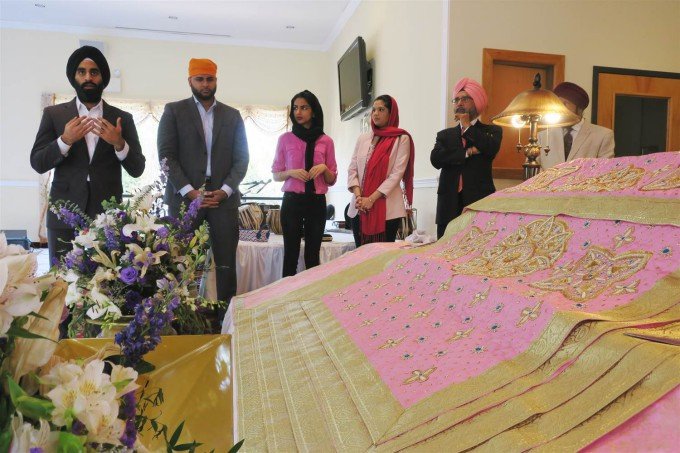 I was confident that such effort would be successful because when I was growing up I noticed that ideals and aspirations of the United States were so closely linked to the foundational beliefs and values of Sikhism. Accordingly, I knew that Sikh values such as equality, religious tolerance, and service would resonate with our neighbors because the vast majority of Americans strongly believe in those same values.
I was confident that such effort would be successful because when I was growing up I noticed that ideals and aspirations of the United States were so closely linked to the foundational beliefs and values of Sikhism. Accordingly, I knew that Sikh values such as equality, religious tolerance, and service would resonate with our neighbors because the vast majority of Americans strongly believe in those same values.
The gears to actually develop this effort really started turning when I met Dr. Rajwant Singh at President Obama's inauguration and when we successfully pitched this idea to a Partner at AKPD, David Axelrod's former and the chief strategy and messaging firm behind both of President Obama's runs for office.
From there Dr. Rajwant introduced me to Shawn Singh Ghuman, We Are Sikhs' Communications Director, who was critical to operationalizing our media outreach.
The campaign then attracted a lot of other public-service oriented young Sikhs that were critical to the campaign's success.
Sumeet Kaur, the Chief of Staff, who is a jack of all trades. Sandy Dhaliwal, the Paid Media Director, who developed our infamous ads. Jas Sajjan, the Policy Director, who handled our government affairs work with the White House and Capitol Hill. And Jivan Achreja, the Strategy Director and Web Advisor, who developed the website and web presence.
-Can you describe or summarize for us the scope of the campaign for anyone who hasn't been following it closely?
The scope of the campaign was extremely comprehensive. We had grassroots events, digital advertising, television advertising, social media, and a sleek website! (check it out at WeAreSikhs.org!)
![]() NPR's Robert Siegel talks to Rajwant Singh, co-chair of the National Sikh Campaign, about the new ad series, "We are Sikhs." The campaign seeks to raise awareness to hate crimes against Sikh Americans.
NPR's Robert Siegel talks to Rajwant Singh, co-chair of the National Sikh Campaign, about the new ad series, "We are Sikhs." The campaign seeks to raise awareness to hate crimes against Sikh Americans.
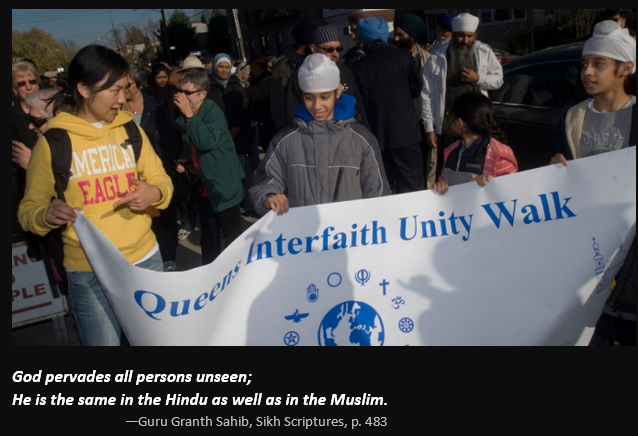
The strategists behind the campaign were also bipartisan. We had strategists that have worked at high levels for President Obama, as I mentioned, President, Clinton, President Bush, Secretary of State Hillary Clinton, and Governor Romney.
Through these efforts, We Are Sikhs secured 46 million impressions thought our national ad program and 29 million impressions through the TV campaign in Fresno. The television ads were super cost effective too. The cost/impression for the national ads was less than a penny each for the national ads and Fresno ads.
We Are Sikhs also secured a total of 511 media placements since launching in April. Digital advertisements made more than 6-million impressions, in addition to the website's 118,000 visits.
From a social media perspective, the We Are Sikhs Facebook page reached 4.8 million users, with more than 10,000 followers, while the Twitter page reached more than 600,000.
-Were you able to measure the impact of all of this outreach and whether it was effective!
Yes! We definitely reached A LOT of people and we were able to measure the results of this outreach in our Fresno campaign. The results are pretty tremendous!
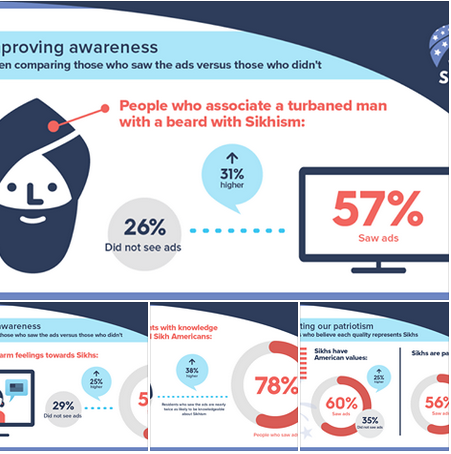
After the campaign, 59 percent of Fresno residents - a clear majority - say they know at least something about Sikhs who live in America. Also, the proportion of residents who saw the ads are nearly twice as likely to say they know at least something about Sikhs who live in America (78 percent) than those who did not see the ads (40 percent).
Further, Respondents who saw the ads are also more likely to associate a bearded man wearing a turban with Sikhism (57 percent), compared with just 26 percent of respondents who did not see the ads.
67 percent of Fresno residents who saw the We Are Sikhs ad believe that Sikhs believe in equality and respect for all people whereas 36 percent of those that did not see the ad believe Sikhs believe in equality.
And 60 percent of Fresno residents that saw the We Are Sikhs ad believe Sikhs have American values whereas only 35 percent of those that did not see the ad believe Sikhs have American values
-Wow, that clearly very impressive. I might add it made history in the U.S. for Sikh awareness. Living in America I didn't imagine we'd have something like this happen anytime soon, it still blows me away. Besides the stats what have you seen yourself as the result of the campaign?
I think that the success of the We Are Sikhs campaign has been able to demonstrate that, despite the current political and racial divisions in our country, progress towards unity and understanding can be made if we simply take the time to reach out and help others understand that no matter what we look like, the common values that unite us are much greater than those that divide us. I know that sounds cliché, but it is true.
For example, I thought was particularly impressive was the level to which we were able to move Whites without a college degree and Republican voters. I think both groups - because of the rise of President Trump - were written off as either intolerant, racist, etc. But we were able to reach these people and not only inform them about Sikhi, but actually have these folks develop a genuine respect for Sikh values and Sikh Americans.
I think we were able to successfully reach these groups of people because did not want the campaign to admonish people for their lack of or understanding of Sikhi. We deliberately developed an inclusive approach that called people in instead of calling them out and kept the campaign laser focused on sharing common values between Sikh Americans and our neighbors.
Another crazy things that kind of blew me away was that people - non-Sikhs - would actually call me (my phone number is on the website) after a commercial would run to tell me how much liked the campaign or the website. I have been watching TV my whole life and I have never thought man I really got call the guys that made that commercial. When I received the calls, we didn't have any data on the success of the campaign, but these anecdotes made me confident that we were making an impact.
-That's amazing, I wouldn't have imagined that either.
For those of us who live the States what messages specifically, did you find, were the most effective in communicating who we are?
The messages that connected Sikh values to something our target audiences already understood and appreciate were the most effective. To develop these messages, we developed a coalition of leading Sikh organizations and activists and we all worked together to flesh out messages on the turban, Sikh American history, and Sikh values.
In fact, SikhNet helped develop perhaps the most potent message. The message, furnished by SikhNet's Ek Ong Kar Kaur, effectively connected the ideals of Sikhi with those of the American revolution and the message conveyed the importance of equality and religious tolerance in Sikhi. I think the reason why this message resonated with so many Americans is because we connected Sikhi and Sikh values - something the clear majority of public knows nothing about - to something all Americans understand.
This message along with others became foundational to our approach.
-As I speak with you I clearly get that you are optimistic, you don't focus on the negatives of Americans or our own Sikh community. What justifies your optimism?
Personally, I believe, despite all the bad news, that there is a fundamental goodness in America and the American people.
I think the numbers of the campaign support my belief and I think the relief efforts in Houston support my belief even more so.
As a country, we still have a long way to go to realizing our ideals, but I am proud to be a citizen in a country that is constantly working to build a more perfect union.
-It was inspiring and stimulating speaking with you. I am very impressed with your initiative and the powerful impact it's had. On behalf of American Sikhs and Sikhs in general I deeply thank you the role you are playing in modern history. I wish you, and us, continued and abounding success.

